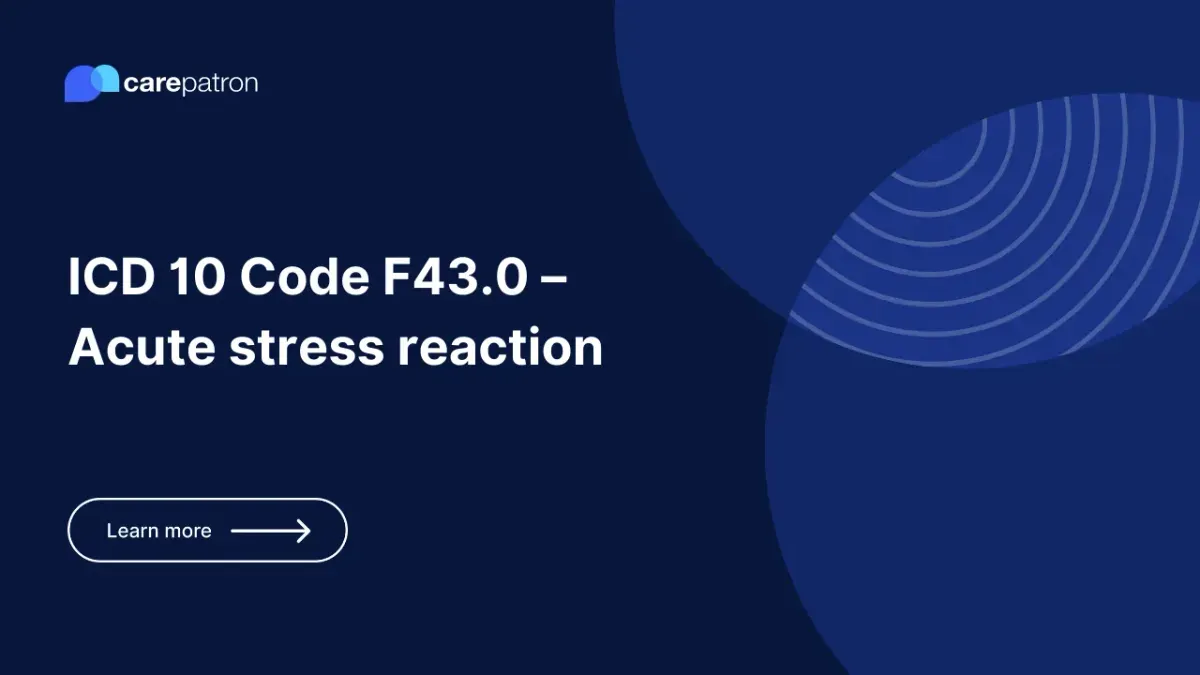
F43.0 – Acute stress reaction
ICD-10-CM code F43.0 represents acute stress reaction. Learn its clinical details and billing info through this guide.
Use Code
EHR and practice management software
Get started for free
*No credit card required
Free
$0/usd
Unlimited clients
Telehealth
1GB of storage
Client portal text
Automated billing and online payments
